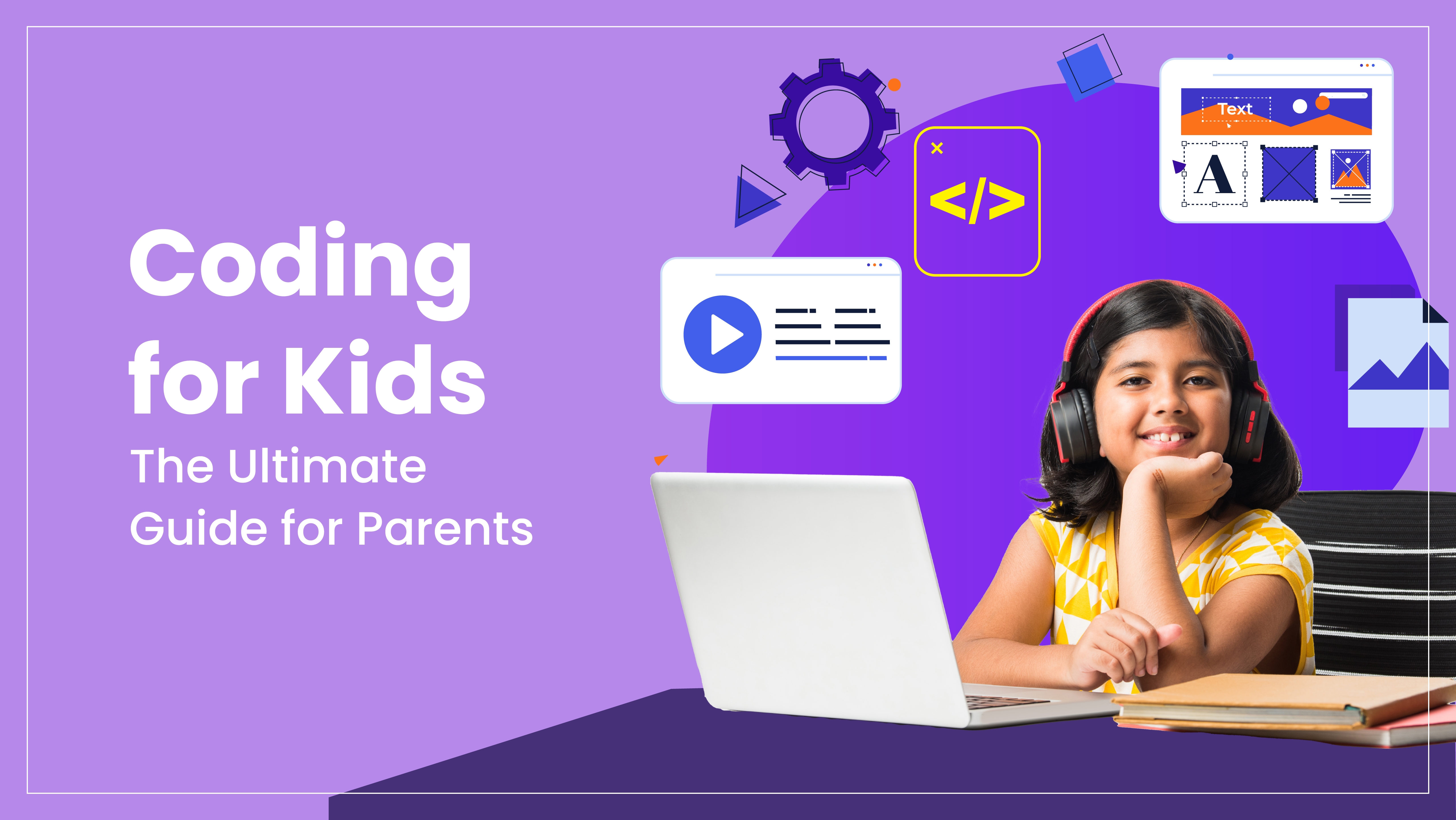The ability to code is becoming more and more important for kids’ future accomplishments in the digital era. Computer programming, or coding, is the process of creating sequences of instructions, called programs, that computers follow to perform tasks. It involves designing and implementing algorithms by writing code in one or more programming languages. Coding for kids develops their critical thinking, problem-solving, and creative skills in addition to preparing them for jobs in technology.
As a parent, one should take part and support coding for kids to encourage the child to take part in extracurricular activities. Additionally, it can open new doors for them in the future.
As a parent, one may wonder how to introduce coding to the child in a fun and engaging way. There are various methods where one can start the learning journey with, and with the advent of online coding for kids, the process has become even easier.
In this blog, we explore the benefits of coding for kids and provide practical tips to help support the child’s coding journey.
Factors to Consider Before Starting Coding for Kids
Below are some factors a parent should keep in mind before starting coding for kids from Standard 6th:
1. Understand the Benefits of Programming for Kids: Regardless of their career aspirations, students can gain numerous benefits from learning to code. Children who learn to code develop critical abilities including computational thinking, logical reasoning, and algorithmic problem-solving. Children who learn to code have the chance to design and develop their own projects, games, and apps, which fosters creativity.
2. Begin Early and Keep It Enjoyable: Introducing the child to the world of coding is beneficial at any age. A plethora of coding materials and apps cater especially to young children, using vibrant graphics, interactive exercises, and captivating characters to ensure learning becomes enjoyable. Encourage kids to learn coding by providing them with games, puzzles, and storytelling applications that entertainingly present fundamental coding ideas. Learning coding early helps kids develop problem-solving skills and logical thinking, essential for tackling complex challenges. Additionally, coding knowledge can open up numerous future career opportunities in the rapidly growing tech industry.
3. Choose the Right Coding Tools and Resources: Choosing the right coding tools and resources is crucial for beginners. A parent selects age-appropriate programming languages and platforms that are engaging and educational. They also consider resources that offer step-by-step tutorials, interactive exercises, and supportive communities to enhance the learning experience.
4. Be a Supportive Guide: To assist the child in their coding adventure, one doesn’t have to be an expert coder. Rather, focus on being a helpful mentor who sparks creativity and interest. Ask questions, work through issues, and acknowledge the child’s accomplishments as they explore coding together. As they confront difficulties, be understanding and supportive so that they can cultivate a growth mindset. Explore coding with the child by sitting down with them, asking questions, working through issues, and acknowledging their accomplishments as one proceeds. Help them cultivate a growth mindset by being patient with them and encouraging them when they confront obstacles.
5. Focus on Real-World Applications: Showing the child how coding is applied in a variety of businesses and professions will help them understand the practical applications of coding. Introduce them to successful people in the world of coding, such as entrepreneurs, innovators, and computer scientists who have made important contributions to technology. Encourage them to explore various technology-related employment options and consider how they could utilise their coding expertise to improve the world.
6. Encourage Experimentation and Exploration: Since coding for kids is all about experimenting, encourage the youngster to learn about various coding languages like Python. Encourage children to address real-world problems or design their own projects based on their interests to give them the opportunity for hands-on learning. Urge them to play around with programming, make errors, and grow from their mistakes.
7. Foster a Growth Mindset: A growth mindset is the belief that abilities and intelligence can be developed through dedication, hard work, and continuous learning. It emphasises the importance of embracing challenges, learning from failures, and persisting in the face of setbacks. Cultivating a growth mindset encourages individuals to seek out opportunities for self-improvement and to view effort as a path to mastery. When it comes to learning to code and other subjects in general, help the child embrace a growth mindset. Appreciate their effort and development, and encourage them to see obstacles as chances for personal development.
This blog provides you with a comprehensive guide on how one can start coding for kids and engage them in the process. Do not wait for the right time to start coding classes; the earlier you start, the better it will be for your child. Coding for kids can help reap several advantages, such as improved critical thinking and problem-solving abilities as well as increased creativity and originality. A parent’s role is essential to encourage the child to code and cultivate a lifelong passion for learning.


Stay connected, stay informed, and thrive with Narayana Educational Institutions!

Suggest some good app or website for our kids to start learning
I am looking for the resource , kindly help me and guide for the same from where I can accessz
Better provide some useful coding platforms to learn for kids on free base so that we can make them to practice
Yeah, it’s a good way to aspire their dreams and flow in technology nowadays. They can convey their dreams of making games or other technological programs. Thank you narayana to keep childs in discipline and always teach wonderful things and their social and economical or science studies
To be rude by school is not that is bad
👍
My personal review for that is excellent💯
Please tell us how to and where to start, is this program covered in the syllabus or should be taken at our own with other institutions
It’s useful
I want learn to coding and I improve my skills